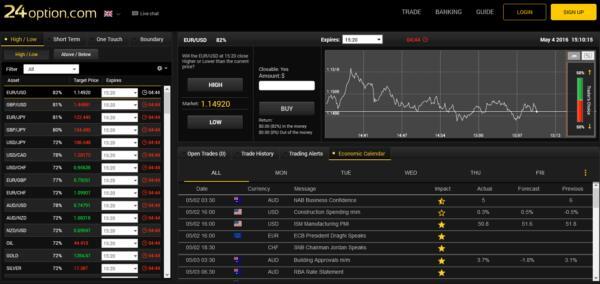JPMorgan turns bullish on UK stocks for first time since Brexit vote | caraacara

Concerns raised by the Democratic Unionist Party and hardliners in the ruling Conservative Party have left a potential agreement teetering. The investment is described as ready-to-go by people with knowledge of the plans, following months of talks led by UK Northern Ireland Secretary Chris Heaton-Harris. However, UK and US officials familiar with the matter said money is only likely to start flowing once the political crisis there has ended. This may require the DUP backing the Windsor deal, and ultimately ending the political standoff at Stormont, Northern Ireland’s legislative assembly.
Representatives of the fishing industry say that the deal cannot be considered a success because its relatively modest gains fall so far short of what the pro-Brexit campaign had promised them. The National Federation of Fishermen’s Organizations, a fishing industry group, published a letter to Prime Minister Boris Johnson https://investmentsanalysis.info/ saying that the they consider the trade deal to be a failure as far as fishing is concerned. The second factor is that the majority of seafood caught in the U.K. Is exported to the EU, and the new nontariff barriers that have sprung up in the wake of Brexit make things especially hard for exporters of perishable goods.
Post-Brexit: UK and Other European Returns Look Ugly while US Listed Equity REITs Come Out Looking Great
This creates opportunities for counter-cyclical investment strategies that take advantage of the dislocation in capital markets. A downturn is expected with a gradual upturn resuming from 2018 onwards. Thereafter, growth is expected to resume as supply shortages should continue to cause prices to rise faster than earnings. A new government is already in place and the central bank has provided several stimulus measures. The dip in currency should provide support to exports and has helped attract inward investment. In Europe, monetary policy and an improving labour market should continue to support its economy.
- That’s why Morgan Stanley analysts scoured the investing universe for stocks they love that plunged on Friday — despite “fundamentals that suggest the reaction was unwarranted.”
- Because London-based banks are losing free access to the EU market, they’ll have to establish new branches or offices in the EU to operate there.
- Jefferies analysts cite stocks that may have been overly punished last week.
- Certainty around Brexit has also been a factor in their relatively strong performance of late (see most recent section of the green line in the BofA chart).
- And today, Britain’s foremost business lobby group urged Jeremy Hunt to use this week’s autumn statement to shake up immigration rules to support companies struggling with chronic staff shortages and a looming recession.
Their comparatively low correlation with other assets also makes them an excellent portfolio diversifier that can help reduce overall portfolio risk and increase returns. U.S. stock investors, too, have fully recovered after an initial loss of -5.6% in the first two trading days after Brexit (and What stocks to buy after brexit a huge spike in market volatility, which more than doubled as I noted in another market commentary). As of July 15th, total returns for the broad U.S. stock market were up +2.4% relative to voting day. Reynolds could struggle to extinguish its debt if sales suddenly fall more than expected.
Dividend Stocks To Watch After Brexit
“The UK stock market comprises a large element of international companies as well as domestic names. Many stocks have proved resilient and are cheaply priced relative to international peers, and offer good prospects for future growth. As the dust settles, it is becoming increasingly clear that the impact was less than feared and that markets have weathered the political uncertainty with surprising resilience. Since the referendum, financial markets have generally recovered and volatility has diminished. New product origin, or content source, requirements for qualifying as U.K. Or EU products will require adjustment by some manufacturers, such as automakers, that currently rely heavily on other regions of the world for parts in their finished products.
The recent exit of Great Britain may provide one such opportunity, and the above listed firms are ones that should be watched to generate further more attractive price points. Look for opportunities to raise cash with stocks that have performed well or short-term trades; I took profits on Viacom (VIA) Friday morning to have more funds available. I would not attempt to time the market, but instead look for attractive valuations that can provide long-term returns. If I were to make a purchase of Diageo at $100 and it dropped further, that would mean only a better opportunity to accumulate more. Therefore, we will close our discussion with an analysis of how these dynamic linkages influence hedge ratios, optimal portfolio weights, hedging effectiveness and downside risk. Investment houses’ “passporting” rights, which permitted companies registered in one EU member to operate in the others.
Dependence of stock and commodity futures markets in China: implications for portfolio investment
An alternative way would be to group companies by foreign and domestic sales instead of market-cap. The Global Exposure Index outperformed the Domestic Exposure Index with 17% the following two days after the vote. If we examine the days after the Brexit vote, in local currencies the FTSE 100 did not sell-off more than the broader European equity markets. This is because this index has a higher percentage of ex-UK revenue. Conversely, the overseas activities by UK companies in the FTSE 250 index were said to be imperiled by the prospect of the UK leaving the European Union. So FTSE 100 vs. FTSE 250 has been seen as a tool to express views on the Brexit negotiations and future outcomes.
The fashion retailer Joules has announced it attends to appoint administrators, putting as many as 1,600 jobs at risk after talks fell through to find new investors. The drop in the pound has also eroded the value of UK shares in dollar terms. The combined market capitalization of primary listings in Paris overtook that of the London in US dollar terms, according to an index compiled by Bloomberg. The revision is due to China’s zero-Covid policy, ongoing geopolitical uncertainties and weaker economic activities. Forecast oil demand this year has been revised down by 100,000 barrels per day, to 2.5m barrels per day. Last Friday we learned that the UK was the only major advanced economy to shrink in the last quarter…..
I’m not comfortable with having lost voting rights, what are my options?
But instead of panicking and selling everything, investors should look for buying opportunities in safer stocks with less exposure to the U.K. A company’s “book value” is the value of its assets minus its liabilities (net asset value), at a set point in time. If a company’s share price is lower than its net asset value (PBV ratio of less than one) then it might be considered as potentially good value and worthy of further analysis. However, for companies with little in the way of physical assets, such as technology companies, PBV ratios have their limitations. After being overlooked for so-long it would seem that domestic and overseas stock market investors at large have begun to reappraise the outlook for UK shares. “The market trades at a 40% valuation discount to global peers, a 30-year low.

The company operates as a platform for third parties and does not sell goods directly to merchants or hold inventory. “The UK faces a range of idiosyncratic supply-side challenges with a more hawkish central bank, which could lead to GDP forecasts for next year coming under more downward pressure than in other regions.” Follows a long-held view for European equity analysts at British rival Barclays, who are also overweight the large cap FTSE 100 for its export-heavy composition, but underweight the more domestically-weighted FTSE 250. Equities have lagged the U.S. by a cumulative 50% and the euro zone by 24%, JPMorgan Head of Global and European Equity Strategy Mislav Matejka highlighted in a research note. “The second cause for concern is the high dependence of both households and firms on the UK government’s furlough scheme introduced during the pandemic.
What are the safest stocks to invest in UK?
- BP.
- British American Tobacco.
- Evraz.
- GlaxoSmithKline.
- Imperial Brands.
- Legal and General.
- M&G.
- Persimmon.
